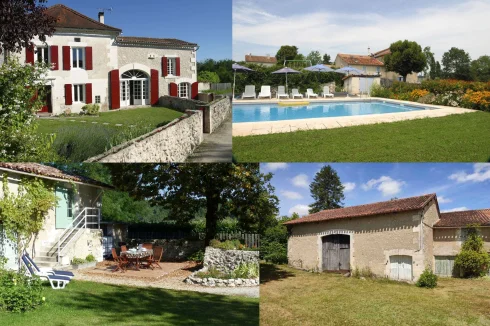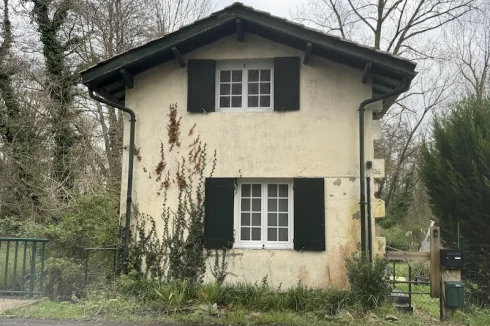Buying an Apartment in France
Tuesday 05 February 2013
France has an agreeably clear legal structure for ownership of an apartment, but co-ownership does make the purchase process more complicated.
Unlike in the UK, where apartments are frequently owned on the basis of what is no more than a long tenancy called a leasehold, in France the ownership structure is one of 'en copropriété', or co-ownership.
This means that as well as owning 100% of their own apartment, owners also have a share ‘en indivision’ in the ownership of the structure and communal areas and facilities. There is no landlord who retains ownership of the freehold to whom you pay a ground rent.
Apartment owners are also afforded a strong degree of protection over control and management of the communal areas and facilities, but there is a reciprocal obligation concerning the use of their own apartment.
Inevitably, therefore, the regulatory framework is complicated and voluminous, which requires that in the process of buying an apartment there are some important areas of verification that need to be undertaken.
Not all of this information is always automatically provided, so you need to be vigilant in your approach and to insist that the seller or notaire provides the information to you.
Co-Ownership Agreement
The key document governing the operation of the apartment block is the reglement de copropriété.
Now it is frequently the case that this is not a simple or short document, but as it fixes the division of the property and the rights and obligations of all apartment owners it is imperative you understand it. Once you have purchased the apartment the law states that you have done precisely that!
The reglement de copropriété will set out those parts of the building that are private and those that are shared. This information will be contained in a document normally attached, called an état descriptif de division (EDD). The EDD will divide the building into individual lot numbers and shared space, with each lot number allocated a percentage of the service charges.
It will enable you to confirm or otherwise that the description of the apartment given to you by the seller is correct.
In particular, it should enable you to assess whether the existing owner is claiming they have private use of a garden or parking area, or whether they have undertaken an unauthorised extension to their apartment into the communal areas.
Similarly, if you are proposing to undertake works to the property, the reglement de copropriété will give some indication of whether or not such works are permissible. In the case of any real doubt you can make completion subject to obtaining consent of the managing agents (called the 'syndic') for such works.
Surface Area
The law offers strong protection to the buyer on the surface area of the apartment.
Under the ‘Loi Carrez’ the seller is required to state the surface area in the sale contract. In the event that it is found to be smaller by at least 5%, then the buyer can demand a reduction on the price.
The regulations around this subject have been drafted in microscopic detail, one reason why most sellers normally take the precaution of having their apartment measured professionally by an estate agent or surveyor prior to advertising it for sale.
It should be noted that this rule does not apply to 'off-plan' developments, which requires you agree the matter as part of the sale and purchase contract.
Maintenance Records
Another key document you may wish to study is the 'carnet d’entretien'of the building.
As the name implies, this is the record of maintenance of the building, including agreed future maintenance programmes.
The maintenance record also holds details of the building and other insurances taken out by the syndic.
The document is held by the syndic, and is available for consultation through the seller.
Building Survey
Apartment sales do not escape the obligatory statutory surveys that all sellers are required to undertake, provided the building is at least 15 years old.
The surveys are called 'diagnostics immobiliers', and a document containing the results of the surveys should be presented to you as part of the contractual process.
The number and type of the surveys will depend on the age and nature of the building.
These reports fall far short of a full building condition survey, so do not be over-reliant upon them.
General Assembly
Although the syndic will have responsibility for the management of the building, they are accountable to the general body of owners through a general assembly.
These meetings will be held on at least an annual basis, to which all owners are entitled to attend and vote. Some decisions are taken on the basis of a majority vote, although the most important matters require unanimity, eg, changes to the division or use of the building.
The minutes (procès verbal) of these meetings are worth reading, for they will contain important information about, for instance, any forthcoming major works, or changes to service charges.
In addition, they may well give an indication of how well the whole building functions, in particular the relationship between apartment owners and between the owners and the syndic!
Syndic Accounts
Consider also whether it would be useful to examine the accounts for the building to establish whether there are any financial difficulties.
This may arise, for instance, if there are any substantial debts which are not being properly covered, including arrears of service charges from existing apartment owners.
The accounts will be held by the syndic, who are required to open and maintain a separate bank account for building.
Service Charges
The information likely to be of greatest interest to a purchaser is the level of the service charges payable on the property.
In addition to service charges for routine management and maintenance of the building, there may also be specific sums payable for past or forthcoming works.
This information is provided by way of a document called 'l'état daté', supplied by the syndic to the notaire.
The law lays down rules governing the spilt of service charges between seller and buyer, although there is nothing to prevent the parties coming to their own agreement.
Before you sign the sale and purchase contract you should of course make yourself aware of the position concerning service charges and the sum to which you will be liable.
Back To: French News
Thank you for showing an interest in our News section.
Our News section is no longer being published although our catalogue of articles remains in place.
If you found our News useful, please have a look at France Insider, our subscription based News service with in-depth analysis, or our authoritative Guides to France.
If you require advice and assistance with the purchase of French property and moving to France, then take a look at the France Insider Property Clinic.





